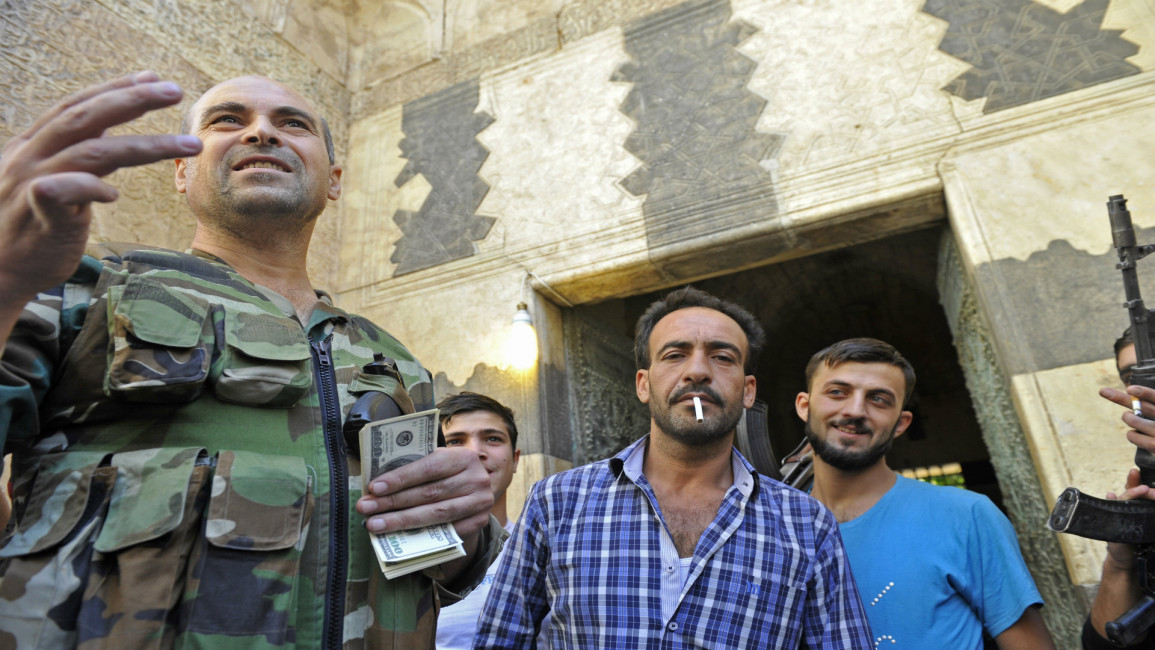
America's white elephant army in Syria
President Barack Obama announced the programme in May, saying the US would train and arm more than 5,000 fighters a year to confront the IS. This after four years of indecision.
There are currently only 54 vetted "moderates" in the US-backed "Division 30", and they are probably the most expensively trained soldiers in human history, at $4m each.
The policy is already in danger of failing. Division 30 has already refused fight the Nusra Front and a senior rebel commander slammed the training policy as "very slow".
Nusra recently warned that anyone wanting to fight the IS "must make their decision after a full strategic study", and rank enemies "according to danger, importance, and priority".
It might not be in the doctrine of the US military to heed the advice of al-Qaeda, but these are the guys doing the fighting and that gives them a tactical awareness that shouldn't simply be dismissed on ideological grounds.
Meanwhile, Turkey has decided to directly intervene under the consent of the US and in preparation for a safe zone in northern Syria.
There is blowback too for the Americans - US-made planes may be used by Turkey to attack Kurdish groups resisting IS, such as the YPG, which was described in a recent article in the New York Times as "the Americans' most effective ally in Syria".
| The US has come late to the party in Syria's multifaceted war. |
In an article for the Guardian, Natalie Nougayrede lambasts Obama, stating that "Syria is going down as the US president's most serious, tragic, far-reaching and long-lasting foreign policy failure".
The US has come late to the party in Syria's multifaceted war. And despite having the most powerful military force in history, there remain serious questions about its ability to shape events on the ground.
Isolating and degrading IS from the air with the aid of a minuscule number of proxy allies appears ambitious at least and foolhardy at most. Reports of US-backed rebels being captured or meekly surrendering are already emerging.
Washington will surely be aware that a much larger and more expensive US-backed force in Iraq buckled and fled from the IS, costing lives, territory and masses of military equipment now in the hands of their enemies.
The US has been fairly consistent in its position on Bashar al-Assad not having a future as President of Syria, but has lacked both international mechanisms and political will to make this a reality.
The need to protect US-trained Syrian rebels may see US planes in action against regime targets in the near future. But again, this won't come as part of a wider strategy that answers the question of how the US wants the war to end, and what role it has in bringing that about.
Without clear answers, the US role will remain an expensive sideshow with theatrical diplomacy.
James Denselow is a writer on Middle East politics and security issues. He is a contributing author to An Iraq of Its Regions: Cornerstones of a Federal Democracy? and America and Iraq: Policy-making, Intervention and Regional Politics Since 1958. He is a former board member of the Council for Arab-British Understanding (CAABU) and a Director of the 'New Diplomacy Platform'. Twitter handle: @jamesdenselow
Opinions expressed in this article remain those of the author and do not necessarily represent those of al-Araby al-Jadeed, its editorial board or staff.




